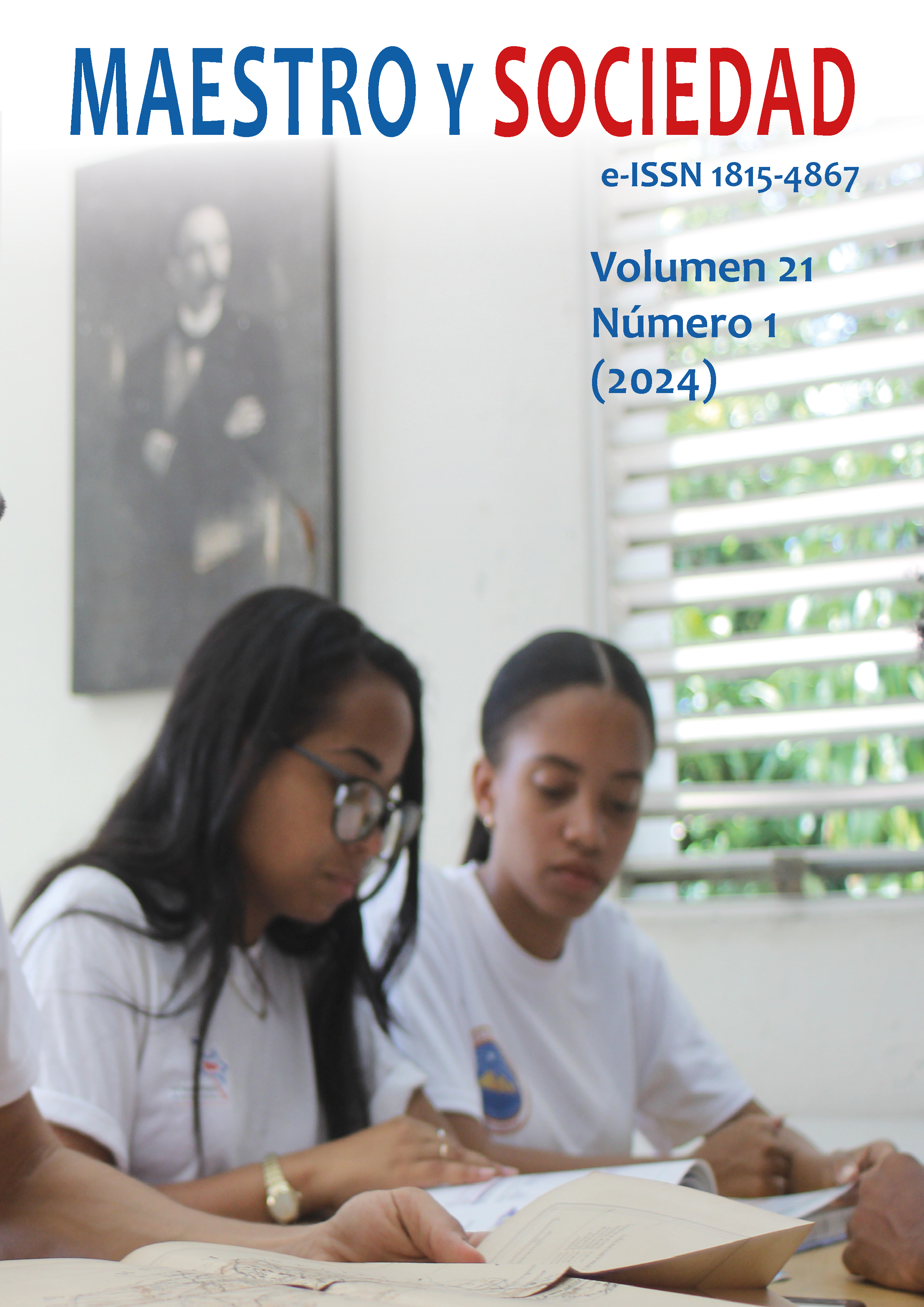Heritage education: vision of past, present and future
Keywords:
heritage education, knowledge, communication, safeguarding, strategic programAbstract
Introduction: Studies related to heritage education are enriched with new concepts and categories from different disciplines and sciences. Hence, it is essential to recognize the approaches of the academy as a teaching, scientific and innovative institution in its interaction with society and contribution to knowledge, communication and safeguarding of heritage. In this direction, the article systematizes theoretical and methodological references for the understanding of heritage education. Materials and methods: materials and methods of the theoretical and empirical level were used, such as: analytical-synthetic, inductive-deductive, and bibliographic or documentary research. Results: The study offers a strategic program for heritage education that favors the development of research related to this topic, from the appropriate didactic parameters to the different educational spaces. Discussion: Amon the actions that are carried out at an international level for heritage education are those directly linked to its protection and enhancement, through informal networks of higher education institutions. Thus, it is possible to carry out exchanges between students and teachers, in addition to sharing activities and projects. Conclusions: The evaluation of learning, the effectiveness of the procedures, the effectiveness of the didactic strategies or the educational context themselves are a guarantee of improvement in heritage education.
References
Brull, M., Fonseca, A., Rey, P. C., y De la Paz, L. M. (2021). Los símbolos de identidad en la formación de los valores universitarios. Maestro y Sociedad, 18(2), 398-411. https://maestroysociedad.uo.edu.cu
Castro-Fernández, B., Castro- Calviño., Conde, J., y López, R. (2020). Concepciones del profesorado sobre el uso educativo del patrimonio. Revista Interuniversitaria de Formación del Profesorado, 95(33.4). https://doi.org/10.47553/rifop.v34i3.81620
Cuenca, J. M. (2014). El papel del patrimonio en los centros educativos: hacia la socialización patrimonial. Tejuelo, (19), 76-96. https://dialnet.unirioja.es
Fontal, O. (2012). La educación patrimonial: Del patrimonio a las personas. Ediciones Trea.
González, N. (2019). La educación patrimonial, una cuestión de futuro. reflexiones sobre el valor del patrimonio para seguir avanzando hacia una ciudadanía crítica. El futuro del pasado, (10), 123-144. http://dx.doi.org/10.14516/fdp.2019.010.001.004
Guillén, R., Hernández, A.M., y Sánchez. J.M. (2021). Educación, patrimonio y turismo: garantía de sostenibilidad. REIDICS, (9), 254-274. https://doi.org/10.17398/2531-0968.09.254
López, G., y Espeso, P. (2020). Pesca artesanal, patrimonio cultural y educación social. El pescador murciano como transmisor de información. Revista murciana de antropología, (27), 11-32. DOI: https://dx.doi.org/10.6018/rmu/427471
Maraña, M. y Revert, X. (2020), Patrimonio Cultural y Desarrollo: una mirada a la Agenda 2030 y el rol del patrimonio. Periférica Internacional, (21), 180-195. https://doi.org/10.25267/Periferica.2020.i21.15
Ministerio de Educación, Cultura y Deporte de España. (2015). Plan Nacional de educación y Patrimonio. www.mecd.gob.es
UNESCO (2017). Guía para asegurar la inclusión y la equidad en la educación. Organización de las Naciones Unidas para la Educación la Ciencia y la Cultura. http://creativecommons.org/licenses/by-sa/3.0/igo/
Sepúlveda, C. y Cádiz, M. (2022). Didáctica para la educación del patrimonio cultural inmaterial (propuesta de técnicas, recursos y estrategias). https://www.researchgte.net
Published
How to Cite
Issue
Section
License
Copyright (c) 2024 Ailén Fonseca Martínez

This work is licensed under a Creative Commons Attribution-NonCommercial-NoDerivatives 4.0 International License.
This journal provides immediate open access to its content, based on the principle that offering the public free access to research helps a greater global exchange of knowledge. Each author is responsible for the content of each of their articles.



























 Universidad de Oriente
Universidad de Oriente 